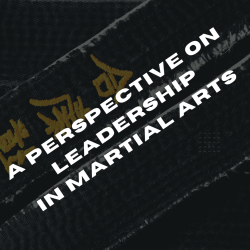Unraveling the Essence of a Grandmaster: A Perspective on Leadership in Martial Arts
Understanding the concept of a ‘grandmaster’ can often be challenging. However, one shared quality among all grandmasters is undeniably their innate leadership skills. Taking Modern Arnis as our reference point, we see a clear hierarchy – from the students to the Guros (teachers), ascending to the Masters, the Datus, and finally, the Grandmaster. This pyramid illustrates the evolution of leadership, with each rank commanding the one beneath.
At the pinnacle, the grandmaster symbolizes the embodiment of leadership, often likened to a president or a king. They bear the responsibility of guiding all other ranks, setting the course for the future of the organization, and embodying the essence of the art.
However, recently there has been a surge in individuals seeking to earn the title of ‘grandmaster’ for personal prestige, with little or no intention of shouldering the leadership responsibilities that the title demands. It’s my humble belief that such behavior undermines the sanctity of the title and the art.
Take note, martial arts aspirants who have achieved the esteemed title of ‘grandmaster’, yet only lead a handful of students from a school, recreation center, backyard or garage, it’s time to either rise to the occasion or respectfully step aside.
I present these thoughts as my personal perspective. I acknowledge and respect the diversity of opinions in the martial arts community and I am open to engaging in constructive conversations about this or related topics.
So, dear readers, community members, and fellow martial arts enthusiasts, I invite your feedback. Do my sentiments resonate, or am I just being overly critical? Are we, as part of this revered tradition, upholding the high standards set by our predecessors?
Thank you for considering my viewpoint, and I look forward to our dialogue.
With all due respect,
Datu Tim Hartman
World Modern Arnis Alliance
#modernarnis #DatuHartman #arnis #datu #Filipinomartialarts #grandmaster #martialarts
Understanding the concept of a ‘grandmaster’ can often be challenging. However, one shared quality among all grandmasters is undeniably their innate leadership skills. Taking Modern Arnis as our reference point, we see a clear hierarchy – from the students to the Guros (teachers), ascending to the Masters, the Datus, and finally, the Grandmaster. This pyramid illustrates the evolution of leadership, with each rank commanding the one beneath.
At the pinnacle, the grandmaster symbolizes the embodiment of leadership, often likened to a president or a king. They bear the responsibility of guiding all other ranks, setting the course for the future of the organization, and embodying the essence of the art.
However, recently there has been a surge in individuals seeking to earn the title of ‘grandmaster’ for personal prestige, with little or no intention of shouldering the leadership responsibilities that the title demands. It’s my humble belief that such behavior undermines the sanctity of the title and the art.
Take note, martial arts aspirants who have achieved the esteemed title of ‘grandmaster’, yet only lead a handful of students from a school, recreation center, backyard or garage, it’s time to either rise to the occasion or respectfully step aside.
I present these thoughts as my personal perspective. I acknowledge and respect the diversity of opinions in the martial arts community and I am open to engaging in constructive conversations about this or related topics.
So, dear readers, community members, and fellow martial arts enthusiasts, I invite your feedback. Do my sentiments resonate, or am I just being overly critical? Are we, as part of this revered tradition, upholding the high standards set by our predecessors?
Thank you for considering my viewpoint, and I look forward to our dialogue.
With all due respect,
Datu Tim Hartman
World Modern Arnis Alliance
#modernarnis #DatuHartman #arnis #datu #Filipinomartialarts #grandmaster #martialarts

